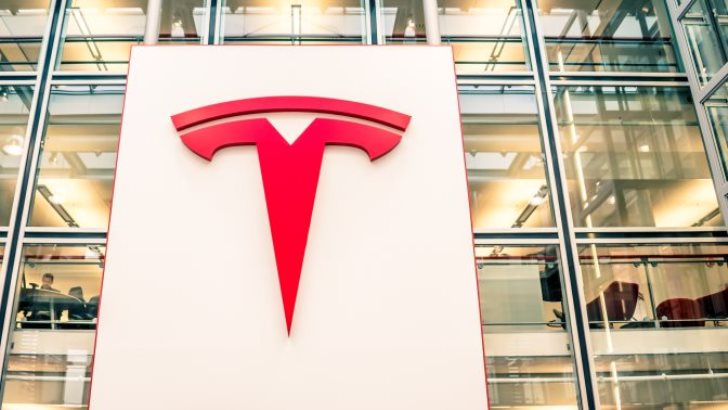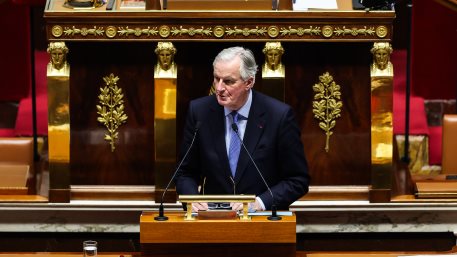
Elon Musk, the visionary behind Tesla, SpaceX, and several other transformative companies, has now taken on a formal governmental role, sparking widespread speculation about the impact this will have on both his leadership and the future of Tesla. With Musk now directly involved in policy-making, questions about potential conflicts of interest, the management of Tesla, and long-term market impacts are surfacing. Investors are particularly keen to understand what this shift means for Tesla’s stock and its future trajectory. This article explores how Musk's new governmental position could affect Tesla in the long term and what shareholders should expect.
Elon Musk's Influence on Policy and Industry
Musk's involvement in government signals a new chapter in the relationship between technology innovators and policymakers. As a strong advocate for sustainable energy, space exploration, and advanced technologies like AI, Musk is well-positioned to influence policies that directly align with Tesla’s mission and growth areas.
In his new governmental role, Musk could push for more aggressive federal support for electric vehicles (EVs) and renewable energy initiatives. This might include expanded tax incentives for EV buyers, accelerated charging infrastructure development, or stricter emissions regulations that indirectly benefit Tesla by encouraging consumers and corporations to transition away from internal combustion engines.
Such policy shifts could strengthen Tesla’s market position and drive increased demand for its products, potentially boosting the company’s stock. Investors are already speculating that Musk’s policy influence could accelerate the adoption of EVs, giving Tesla a competitive edge over traditional automakers.
Potential Conflicts of Interest and Corporate Governance Concerns
However, with Musk wearing two hats—one as the CEO of Tesla and the other as a government official—concerns over potential conflicts of interest are growing. Critics argue that Musk’s governmental role could lead to favoritism toward his companies, sparking regulatory scrutiny.
If Musk is seen as using his influence to shape policies that disproportionately benefit Tesla, competitors could cry foul, and regulators might step in to enforce stricter rules around corporate governance and government relations. This could result in regulatory headwinds for Tesla, including antitrust investigations or legal challenges, which could impact its stock in the long run.
Additionally, Musk’s attention may become increasingly divided. With new responsibilities in the public sector, shareholders might question how effectively he can manage Tesla’s day-to-day operations. While Musk is known for his ability to juggle multiple ventures, his reduced focus on Tesla could introduce volatility to the stock, particularly if key projects or product launches are delayed.
Long-Term Impact on Tesla’s Growth Strategy
On the flip side, Musk’s direct involvement in shaping government policies could also result in long-term benefits for Tesla, particularly if federal initiatives align with Tesla’s global growth strategy. If Musk can help enact policies that promote the EV industry—such as enhanced subsidies for electric vehicle manufacturers, zero-emission mandates, or large-scale infrastructure investments—Tesla could see exponential growth.
Moreover, Musk's influence over trade agreements, particularly with countries that are key to Tesla’s supply chain like China, could benefit Tesla by ensuring favorable terms for importing and exporting crucial materials like lithium, cobalt, and nickel, which are essential for battery production. This would allow Tesla to maintain its cost advantages and further scale its production capacity without major supply constraints.
As the U.S. and other global governments shift toward decarbonization and sustainability goals, Musk’s role in shaping these policies could position Tesla as a leader in the global green revolution. As governments increase their commitment to reducing carbon emissions, Tesla's stock could see significant upside as the company solidifies its leadership in both electric vehicles and energy storage solutions.
Investor Sentiment and Stock Market Volatility
Investors often respond swiftly to shifts in leadership or executive roles, and Musk’s involvement in government could introduce both short-term volatility and long-term gains. In the short term, uncertainties around his new role could create market jitters, leading to stock fluctuations. However, over time, if Musk proves to be an effective bridge between the private sector and government, Tesla’s stock could gain more stability.
Additionally, Tesla’s stock is closely tied to Musk’s personal brand and leadership. His bold moves often result in large market reactions, whether positive or negative. Investors need to brace for both as Musk’s government role takes shape, and Tesla’s future trajectory may experience periods of increased volatility based on his decisions and public reception of his new influence.
Conclusion: A New Frontier for Tesla Investors
Elon Musk’s new governmental role undoubtedly introduces a new dimension to Tesla’s future. While there are potential risks related to conflicts of interest and regulatory challenges, there is also considerable upside if Musk can successfully use his policy influence to advance the EV industry and renewable energy.
Tesla’s stock may experience short-term turbulence as the market reacts to these changes, but the long-term implications could be positive if Musk can balance his government duties with Tesla’s growth objectives. For investors, it’s critical to keep a close eye on how Musk’s new position shapes Tesla’s strategic direction and its ability to capitalize on future policy shifts in the energy and automotive sectors.




















